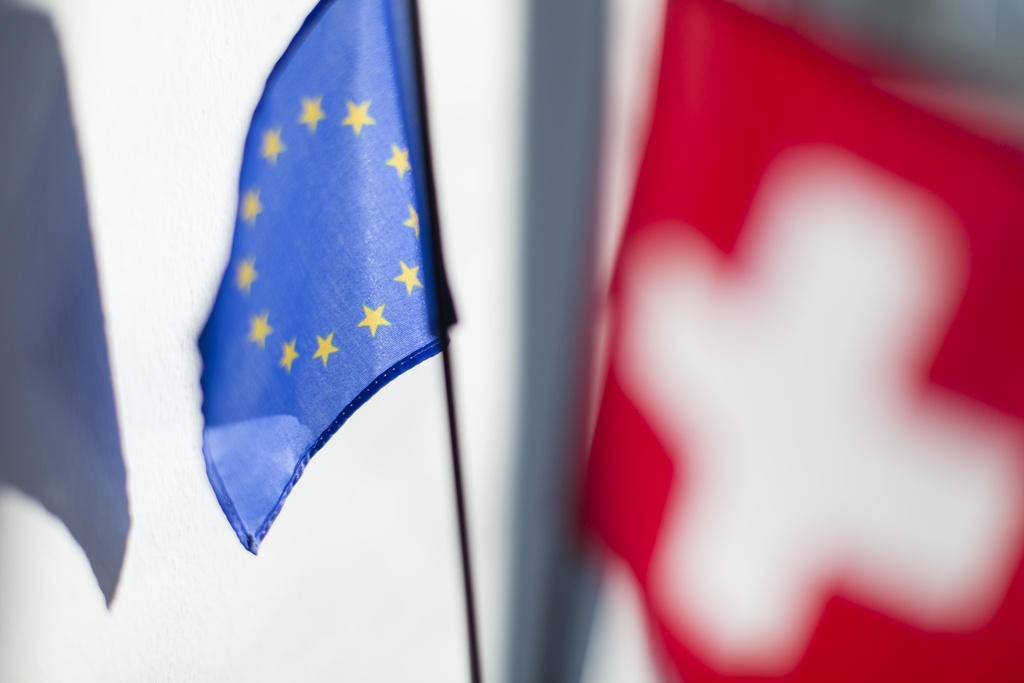
People’s Party congress slams draft EU framework deal

At a gathering in eastern Switzerland, members of the right-wing Swiss People’s Party reiterated on Saturday their staunch opposition to a draft framework accord with the European Union.
“A contract of submission that Switzerland can and should never sign,” was how party president Albert Rösti put it, as delegates of Switzerland’s biggest political group met in canton Thurgau to discuss their line on several current issues.

More
What is this EU framework deal?
Though by no means a surprise – the People’s Party is anti-EU – the firm stance comes at a moment when the consultation process on the framework deal, begun by the government in December, is wrapping up.
So far, many parties, including the Social Democrats, have given mixed messages about their stance: apart from the People’s Party, the only other groups that have come out clearly have been the Liberal Greens and the Radical Liberals, both in favour.
The People’s Party opposition, based on concerns that have also roused the ire of trade unions such as wage protection and rules for foreign companies operating in Switzerland, is mainly grounded on the issue of sovereignty.
One delegate at the Thurgau gathering, Magdalena Martullo-Blocher, said that ratifying the accord would mean becoming subject to EU laws, seeing “massive” increases in free movement, and suffering packed roads, railways, and housing shortages.
The public stance also comes a day after Justice Minister Karin Keller-Sutter, marking 100 days in office, talked up the ‘bilateral path’ and relations with the EU in general as indispensable for hundreds of thousands of Swiss jobs.
Tricky relations
Since 2014, talks have been taking place to formalise relations between Bern and Brussels, currently covered by around 120 separate accords negotiated since a 1992 referendum in the Alpine state rejected joining the European Economic Area.
The proposed overarching agreement covers five of the larger bilateral deals: free movement of people, mutual recognition of industrial standards, agricultural products, air transport, and land transport.
Under the negotiated accord, Swiss rules would automatically adapt to be in line with EU law. The treaty would also aim to provide a more effective platform to resolve disputes using arbitration panels to handle disagreements.
The EU has given Switzerland until July to decide whether it wants to accept the deal.

In compliance with the JTI standards
More: SWI swissinfo.ch certified by the Journalism Trust Initiative





























You can find an overview of ongoing debates with our journalists here . Please join us!
If you want to start a conversation about a topic raised in this article or want to report factual errors, email us at english@swissinfo.ch.